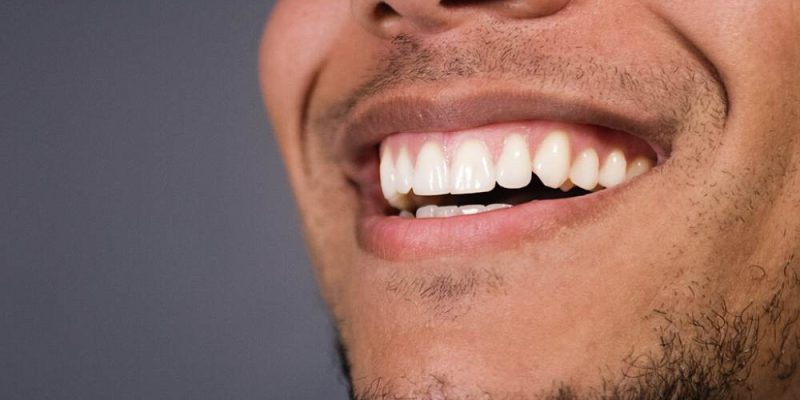- Max Super Speciality Hospital, Sector-128, Noida
- CLINIC : + 91 8076243481
Blog

Details
READING TIME
3 min
CATEGORY
Blog
AUTHOR
Dr. Praveen Kumar
Top 10 Causes of Tooth Sensitivity and How to Avoid Them
Tooth sensitivity is a common issue that can cause discomfort or pain when consuming hot, cold, sweet, or acidic foods and drinks. Understanding the causes of tooth sensitivity and how to avoid them can help you maintain better oral health and enjoy your favorite foods without pain.
1. Enamel Erosion
Cause: Enamel erosion occurs when the protective outer layer of the teeth wears away. This can happen due to the consumption of acidic foods and drinks, or brushing too hard.
Avoidance: To prevent enamel erosion, use a soft-bristled toothbrush and avoid brushing your teeth immediately after consuming acidic foods and drinks. Opt for toothpaste designed for sensitive teeth, which can help protect and strengthen enamel.
2. Tooth Decay
Cause: Cavities caused by tooth decay can expose the dentin layer of the teeth, leading to sensitivity.
Avoidance: Maintain good oral hygiene by brushing twice a day, flossing daily, and visiting your dentist regularly for check-ups and cleanings. Limit sugary and starchy foods that contribute to tooth decay.
3. Gum Recession
Cause: Gum recession exposes the roots of the teeth, which are not protected by enamel and can be sensitive to temperature changes and touch.
Avoidance: Practice gentle brushing and avoid aggressive flossing. If you notice gum recession, consult your dentist for possible treatments, such as scaling and root planing or gum grafts.
4. Teeth Grinding (Bruxism)
Cause: Grinding your teeth, especially at night, can wear down enamel and expose the sensitive dentin layer.
Avoidance: If you grind your teeth, ask your dentist about a custom mouth guard to protect your teeth while you sleep. Stress management techniques can also help reduce grinding.
5. Acidic Foods and Drinks
Cause: Consuming foods and beverages high in acidity, such as citrus fruits, sodas, and wine, can erode enamel and increase sensitivity.
Avoidance: Limit your intake of acidic foods and drinks. When you do consume them, rinse your mouth with water afterward and wait at least 30 minutes before brushing your teeth to avoid further enamel erosion.
6. Dental Procedures
Cause: Some dental treatments, like teeth whitening, fillings, and crowns, can cause temporary sensitivity.
Avoidance: Discuss potential sensitivity with your dentist before undergoing procedures. They can recommend products to reduce sensitivity and advise on how to care for your teeth post-treatment.
7. Cracked or Chipped Teeth
Cause: Cracks or chips in the teeth can expose the dentin and lead to sensitivity.
Avoidance: Avoid chewing on hard objects like ice and avoid using your teeth to open packages. If you have a cracked or chipped tooth, see your dentist for appropriate treatment.
8. Plaque Buildup
Cause: Plaque buildup on the teeth and gums can cause sensitivity, particularly if it leads to gum disease.
Avoidance: Maintain a thorough oral hygiene routine, including brushing, flossing, and regular dental cleanings to prevent plaque buildup.
9. Use of Whitening Products
Cause: Some over-the-counter whitening products contain harsh chemicals that can cause tooth sensitivity.
Avoidance: Use whitening products as directed and consider those formulated for sensitive teeth. Consult your dentist for professional whitening options that may be gentler on your teeth.
10. Exposed Dentin
Cause: The dentin layer of the teeth can become exposed due to various factors, including enamel erosion, gum recession, and tooth wear.
Avoidance: Protect your enamel and gums by using a soft-bristled toothbrush, brushing gently, and avoiding acidic foods and drinks. Use toothpaste for sensitive teeth to help block the sensation caused by exposed dentin.
About Us
Dr. Praveen Kumar is a distinguished professional who holds a Master’s Degree in Dental Surgery from Meerut University, he furthered his education with an MBA in Health Care Administration from FMS, Delhi University. Dr. Kumar is a Diplomat of the World Congress of Oral Implantology and a Fellow of both the Pierre Fauchard Academy and the International College of Dentists. Dr. Kumar is a Diplomat of the World Congress of Oral Implantology and a Fellow of both the Pierre Fauchard Academy and the International College of Dentists.
- Developed By Online B2B Digital Technology © 2024 – All Rights Reserved
